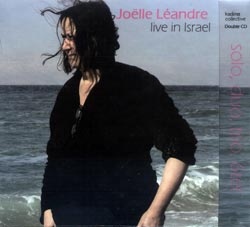
Double CD of bassist Joelle Leandre perforing Solo in Israel, then in duos, trios and a sextet with JC Jones, Assif Tsahar, Albert Beger, Ariel Shibolet, &c.
In Stock
Quantity in Basket: None
Log In to use our Wish List
Shipping Weight: 8.00 units
EU & UK Customers:
Discogs.com can handle your VAT payments
So please order through Discogs
Sample The Album:
Joelle Leandre-bass
Jean Claude Jones-doublebass
Ariel Shibolet-soprano saxophone
Albert Beger-tenor saxophone
Assif Tsahar-bass clarinet
Haggai Fershtman-drums
Daniel Sarid-piano
Click an artist name above to see in-stock items for that artist.
UPC: 834479851179
Label: Kadima
Catalog ID: KCR 17
Squidco Product Code: 10969
Format: 2 CDs
Condition: New
Released: 2008
Country: Israel
Packaging: Cardboard Gatefold 3 Panels with magnetic clasp
Live recordings by Ori Winokur.
Double CD of bassist Joelle Leandre perforing Solo in Israel, then in duos, trios and a sextet with JC Jones, Assif Tsahar, Albert Beger, Ariel Shibolet, &c.

The Squid's Ear!
Artist Biographies
• Show Bio for Joelle Leandre "Joëlle Léandre is a famous French Bassist and is known for her collaborations with other musicians in the field of improvised music. Born in France on September 12th, 1951, she made her music debut in 1984 with Les Douze Sons. Her childhood was filled with music, and she was particularly interested in the piano during her early years. In her later years, she developed an interest in double bass, which won her many honors and scholarships during her education. Her double bass teacher Pierre Delescluse encouraged her to apply to the Conservatoire National Superieur de Musique de Paris, where she was formally trained and noticed for her talent in the bass. Her outstanding musicianship took her to the United States and to the Centre for Creative and Performing Arts in Buffalo through a scholarship. In the United States, she expanded her network and met some of the best composers, such as John Cage, Giacinto Scelsi, and Morton Feldman. Among them, John Cage greatly influenced her music and compositions. Her time in the United States also enabled her to experience downtown New York music, which was another significant influence that led to her continued involvement in the field of improvised music. Some of her notable collaborations in the field of contemporary music are with Pierre Boulez, Merce Cunningham, John Cage, and Giacinto Scelsi. Among them, John Cage and Giacinto Scelsi were the biggest influences in her life and music. In an interview, Joëlle Léandre said that John Cage was her spiritual father and changed her perception of sound and music. In another interview, she tells how Giacinto Scelsi allowed her to discover her own music and how his music transported her into a new world of improved consciousness. In the field of jazz music, she collaborated with Derek Bailey, William Parker, and Sebi Tramontana. Her music was owned and distributed by different music labels, including FMP, Leo, RougueArt, and Red Toucan. Some memorable songs and albums she released throughout the years include Instant Replay, Les Douze sons, Trios, Sweet Zee, Frerebet, Joelle et Tetsu, Philippe Fenelon, Voyages, etc. Some of the recent releases include Can You Hear Me and Unleashed. She has also performed live at the Tampere Jazz Festival twice, where popular international artists compete with each other. Joëlle Léandre is also the member of European Women's Improvising Group (EWIG). The group evolved from the Feminist Improvising Group, and Joëlle Léandre joined the group in 1983. In the early 1900s, she co-founded Les Diaboliques with Irene Schweizer and Maggie Nicols, who were her long-time musician friends. Besides that, she also teaches several classes in prestigious universities about contemporary and improvised music. She has lived in France, Germany, and U.S during her lifetime, teaching at academic institutions in the religions and playing concerts. In 2002, she was invited to Canada as a visiting professor for music and composition." ^ Hide Bio for Joelle Leandre • Show Bio for Jean Claude Jones "Jean Claude Jones was born in Sfax, Tunisia and moved to France as a young child. As a teen, he taught himself simultaneously to play lead and bass guitar. At the age of 17 he began working in professional pop and jazz bands. In 1978 he moved to the US to pursue formal music studies, graduating from the Berklee College of Music in Boston, where he majored in jazz guitar. He continued his studies at the Music Institute of Technology in Los Angeles. In 1983 he emigrated to Israel, where he became a key player on the newly developing jazz scene. Several years later he made a definitive switch from guitar to double bass, and became involved in free improvised music. In time, he added electronics and computer-manipulated sounds to his musical arsenal. In 2016 because of a serious illness he returned the guitar as his main instrument.The driving force behind his work is "finding my space." JC Jones is an esteemed music educator, and served as chair of the Jazz Department at the Jerusalem Academy of Music and Dance between 1996 and 2000. He has performed and recorded with many leading international and Israeli musicians, dancers, poets, and vocal artists, including Stan Getz, Red Rodney, and Dave Liebman. Since the 1990s he has appeared with John Zorn, Anthony Coleman, Ned Rothenberg, Joey Baron, Marc Ribot, Ikue Mori, Mike Patton, Damon Smith, Joelle Leandre, Slava Ganelin, Steve Horenstein, Albert Beger, Arkady Gotesman, Avishai Cohen, Ariel Shibolet, Harold Rubin, Victoria Hanna, Josef Sprinzak, Amos Hetz, Anat Shamgar , Felix Ruckert, Dieter Hautkamp, Julyen Hamilton, Mark Dresser, Barre Phillips, Bert Turetzky, Irina Kalina Goudeva. In 2004 he founded his label Kadima Collective Recordings. Some of JC's major projects include Deep Tones for Peace 2009 telematic performances, the Kadima Triptych Series (cds/dvds/texts featuring double-bass masters), Myelination (the myelin chemical sounds and improvised music), and The Temperamental Duo, a collaborative work on Lydian + Explorations with composer/reeds player Steve Horenstein. Since 2016 he has been working with lap-style prepared and sometimes prepared spanish guitar, in multiple collaborations and recordings with several eminent musicians. Works includes Wild Guitar Musings 2016 solo guitar, Keep on Dancing, duos recordings with percussionists Haim Peskoff, Oren Fried Denis Fournier, and JC on guitar, Sick Puppies In Love duos with vocalist Anat Pick 2016, Drones 2017, La Sprezzatura Ensemble 2018, Give it your all - Wild Guitar Musings 2018." ^ Hide Bio for Jean Claude Jones • Show Bio for Ariel Shibolet "Ariel Shibolet Born in1972 in Israel. Played the cello and had classical education in his youth. Started playing the saxophone in 1992. Member of the "Kadima Collective" for improvised music and the "Tel-Aviv Art Ensemble". Organizer and co curator of the monthly Tel Aviv Meetings at evontin 7. Performs regularly in Israel, the United States and Europe. published his first cd at "Leo REcords" and since then another dozen collaborating with israely and international musicians.. His CDs recordings and concerts are remarkably reviewed world wide. played at the "total Music Meeting" Berlin 2007 and 2008, and at the "Moers Festival" 2010 among other musical events in europe and the us and israeli festival such as: "whight night" in tel aviv, the tel aviv jazz festival, Hagad festival and more. created improvised music for animation films and documetry by Gerd Conradt. taught improvised music to children in several projects in berlin 2008-2012. the 2008 group performed at the "Total music meeting 2008", the 2011 project was recorded and will be published as a cd at "nur nicht nur" - a German label for improvised music, sumer 2013. published his method for teaching improvised music to children in "expressiv & explorohrativ", a book about the use of improvised music with children. Over these years played with Birgit Ulher (GER), Damon Smith (USA), Joelle Leandre (FRA), Jhon Butcher (GBR), Eddie Prevost (GBR), Martin Blume(GER), Phil Waxmann(GBR), Marcio Mattos(GBR), Wolfgang Fuchs (GER), Sophie Angiel (FRA), Chriss Cutler (GBR), Mazen Kerbaj(LEB Scott R.Looney (USA), Jen Baker (Aurora Josephson (USA), Jerome Bryerton (USA), Dror Fauler (SWE), Klaus Janek (GER), Chad Taylor (USA), Martin Klapper (CEZ), Peter Friss nielsen (DAN), Christer Irgens-Moller (DAN), John Dikeman (Egypt), Reut Regev (USA), Yigal Phoni(USA), Olga Magieres (DAN), Niels Winter (DAN), Mark Oleary and many more... Israeli musicians: Haggai Fershtman, Nori Jacoby, Jean Claude Jones, Harold Rubin, Rran Zachs, Alex Drull, Yoram Lachish, Daniel Hofman, Shmil Frenkel, Rami Gabai, Albert Beger, Yoni Silver, Ronny Brener, Michel Mayer, Adi Snir, Offer Bymel, Eran Zachs, Tom Soloveizic' Daniel Sarid, Dana Waxman, Yonatan Avishay, Eitan Radushinski, Shlomi Shaban, Yuval Mesner, Adi Hershko, Anat Pick, Karni Postel, Maya Dunitz, Steve Horenstein, Yiftach Kadan and more...." ^ Hide Bio for Ariel Shibolet • Show Bio for Albert Beger "Albert Beger (born 1959) is a saxophonist, flutist and an academy lecturer from Israel. Beger is a composer in the fields of post-bop, hard-bop, free-jazz and avant-garde music. Albert Beger was born in the city of Istanbul, Turkey, in 1959 and immigrated to Israel with his parents when he was three years old. From an early age, he was exposed to the cultural fusion in the new born state of Israel, a mixture of Eastern-Europe, Western-Europe and Arabic food, clothes and music. In his youth, he was mainly listening to the pop/rock music of the sixties, and got carried away in the prog-rock wave of early seventies. Upon listening to Jethro Tull's music for the first time, and hearing Ian Anderson's flute - Albert was immediately attracted to the sound that was produced by the instrument and during his army service he got himself a flute and started learning the instrument by himself. Post his army service, Albert studied classical music with legendary Israeli flutist Uri Teplitz, while discovering the tenor saxophone in the age of 25-26. According to Albert, the flute couldn't carry the energy that he wanted to produce and the tenor fitted right for this need. AT the age of 27, Albert received a scholarship from the Berklee School of Music in Boston and went to study in the prestigious institute for three years. This is time when he was introduced with the more free shapes of jazz, and was introduced to the music of Albert Ayler, Coltrane, Cecil Taylor and Art Ensemble of Chicago. In 1995 Albert released his debut album The Primitive, a collection of early compositions that gathered together to make a surprising debut. This Life followed in 1997 and was released in Israel by the biggest record label in the country NMC records, and got a distribution deal from Columbia Records. Art Of The Moment followed in 2000, featuring Menachem Zibziner on Guitars, Gabi Meir on Bass and Amir David on drums. In 2003, a turning point in Albert's career, he was signed to the new label Earsay's Jazz, by producer Yossi Acchoti, with a request to follow Albert for future albums to come. With Earsay's Jazz, Albert released Hevel Havalim in 2003, with his new trio (including Gabriel Meyer on bass and Hagai Fershtman on drums), and Listening in 2004 with his quintet (the former album trio augmented by Yoni Silver on alt saxophone and bass clarinet, and Yiftach Kadan on guitar). In 2005, Albert received his first formal recognition from the country, when he won the Landau Award for Performing Arts. In a jazz festival that year in Tel Aviv, Albert shared the stage with two of the most dominant figures in the free jazz world - Hamid Drake (drums) and William Parker (bass). Albert, Drake and Parker, booked a studio session and recorded couple of Albert's compositions, and the session was released in a two volume album called Evolving Silence (released 2005 and 2006). In 2008, Albert had released his eight album Big Mother. Big Mother dealt with the topic of ecology and the danger human beings cause the planet. This album was the first to include a pianist (played by Aviran Ben Naim). The year after, Albert received Israel's highest honor for musicians, the prestigious Prime Minister's Award for Composers. In 2010, Albert had signed a record deal with the relatively new label Anova Music, and released Peacemaker, a six piece conceptual suit." ^ Hide Bio for Albert Beger • Show Bio for Assif Tsahar "Assif Tsahar (born Israel, June 11, 1969) is an Israeli tenor saxophonist and bass clarinetist. He lived in New York City from 1990 to the early 2000s, returning to Israel. He has performed with Cecil Taylor, Butch Morris, William Parker, Mat Maneri, Hamid Drake, Peter Kowald, Susie Ibarra, Rashied Ali, Warren Smith, Wilbur Morris, Le Quan Ninh, John Tchicai, Fred Anderson, Rob Brown, Roy Campbell, Gerald Cleaver, Agusti Fernandez, Ken Vandermark, Kent Kessler, Joe Daley, Herb Robertson, Cuong Vu, Chris Jonas, Ori Kaplan, Oscar Noriega, Roman Stolyar, Alex Harding, Steve Swell, Cooper-Moore, and Tom Abbs He founded the label Hopscotch Records in 1999. In 2006 he opens the music club Levontin7 with Daniel Sarid in Tel Aviv. " ^ Hide Bio for Assif Tsahar • Show Bio for Daniel Sarid "If one were to meander through the Israeli experimental scene, or the free jazz scene, or even the standard jazz scene, or you know what, even the classical music scene, one won't need long before s/he is introduced with the name Daniel Sarid. Hence, it's a very interesting fact that Sarid, although an accomplished pianist and composer, doesn't consider himself an active musician when compared to some of his colleagues, who I must add, would disagree with him wholeheartedly. Regardless, Sarid was one of those products of the 80s who were fortunate enough to bring about the birth of a new scene in Israel, encompassing experimental styles from classical avant-garde to free jazz. This came about, at first, with his managing years at the Gada Ha'Smalit, by now a defunct mythical venue for experimental music, and later with his joining forces with two other Israeli musical greats - Assif Tsahar, and Ilan Volkov, in the formation of the Levontin 7, still active now in it's 10th year. The Levontin 7, other than being the "it" place in Tel Aviv for many years, represents a meeting point for various musical genres coinciding quite peacefully under one roof. It is quite customary to attend a free jazz concert there one night, an indie rock gig the next, a classical recital on a different evening, followed by an experimental evening of noise, closing with some heavy metal. This is perhaps why people react so fondly to this venue, as it has no agenda in its programming other than parading this lack of agenda. But more so, and as you'll soon discover, it represents this same generation of artists Sarid is part of, and their insistence on creating in Israel a scene corresponding with similar scenes in the world, yet acting in a manner completely of its own. Sarid travels back in thought in order to describe his journey, and begins with his adolescence in the 80s. The defining mood was one marked by an inability to feel a sense of individuality within what was then still a highly a recruited society. The ethos of Zionism was still quite alive, and it seemed that any conscious or even subconscious act of self could be deemed an attack on the collective spirit. Sarid couldn't find his voice within this culture and its manifestation in language and art. As a telling example, he recounts for us his feelings upon hearing the music of Pink Floyd for the first time - an experience he describes as mind boggling. Here was a music that paraded the individuals creating it, and almost celebrated the individualistic status. At this point, Sarid was not yet aware of the problematic aspect of self-idolatry, as he was simply awe struck by the possibility of setting oneself on the pedestal rather than the "cause", or societal issues. Sarid continues to describe how his father once took him, the adolescent musician, to see the Globe Unity Orchestra, who was on tour in Israel. This reconnects, in Sarid's mind, to the first performance of Cecil Taylor he saw in Chicago at the age of 15. In both instances it was not the music taking the forefront, but the energy and spirit. These were musical examples in which an ensemble is formed out of complete distinguishable individuals. For Saird, this music presented a possibility for an individualistic practice in art, a practice far removed from his then surroundings. Hence it should come as no surprise that a few years later we find Sarid in NY, immersed in a scene, which, at first, provided a mirror for his lack of knowledge and provinciality, and this although he was already considered a bonafide member of the jazz scene in Israel. More interestingly, it was during the NY years that Sarid slowly realised that music was only a part in a larger spiritual practice, and came to an important underlying understanding regarding freedom - namely that freedom isn't about being alone. Sarid noticed that many of the finest protagonists of "free" music were, by default, outcasts - lonely individuals struggling for survival within a society (not necessarily financially, although this many times was the case too). He realised that the position of these same artists, being critical, immediately excluded them from within artistic societies that simply weren't able to contain this criticism without seeing it as an outright attack. In accordance, Sarid describes a difficult period of struggle where although feeling free, he also felt extremely lonely. This was the feeling that also led to his eventual return to Israel. But with this return Sarid finally managed to create a synthesis between his personal development, music, and society. Sarid mentions our past guest, Harold Rubin, as instrumental to his personal realisations upon his return. Rubin representing, possibly as he does for an entire generation of improvisers, this portal from specific musical thought towards a holistic approach. Soon after, Sarid is already managing the Gada Ha'Smalit, which allowed a renewed connection with society and the founding community that will, in time, become the experimental music scene in Israel. In almost immediate reaction, Sarid warns us of scenes, quoting Bob Dylan who said: "good and bad are concepts created by people within scenes". The Levontin 7, hence, was a practical solution brought about by three friends within that fledgling scene who shared the common ethos claiming that there is no such thing as a bad genre in music. And now, back to Israel 2016, Sarid describes himself as a person who doesn't much see himself as a soloist or indeed someone producing solo work. However, both his solo endeavours (as the examples recorded for us at Halas) as well as his ensemble formations (as can be seen in his upcoming trio CD release) represent a facet of his inner search. In a simple fashion, Sarid presents a simple and beautiful notion: "our need as societies and individuals is for healing and therapy, and music is my way". And so finally, I reach a closer understanding of why Sarid doesn't necessarily refer to himself as an active musician, but rather sees music as a way of life... a shade of relation to self, which is much grander than music alone. Although I relate with this sentiment, I still have to disagree... in my eyes Sarid is as close as one gets to the real deal." ^ Hide Bio for Daniel Sarid
12/17/2025
Have a better biography or biography source? Please Contact Us so that we can update this biography.
12/17/2025
Have a better biography or biography source? Please Contact Us so that we can update this biography.
12/17/2025
Have a better biography or biography source? Please Contact Us so that we can update this biography.
12/17/2025
Have a better biography or biography source? Please Contact Us so that we can update this biography.
12/17/2025
Have a better biography or biography source? Please Contact Us so that we can update this biography.
12/17/2025
Have a better biography or biography source? Please Contact Us so that we can update this biography.
Track Listing:
CD 1
7 bass solos
CD 2
Sextet featuring Assif Tsachar bass clarinet , Ariel Shibolet soprano saxophone, Albert Beger tenor saxophone, Haggai Fershtman drums, Daniel Sarid piano.
Trio with Steve Horenstein barytone, soprano saxophones and flute, J-C Jones bass.
Duo with Sameer Makhoul oud
Improvised Music
Jazz
Stringed Instruments
Septet recordings
Search for other titles on the label:
Kadima.


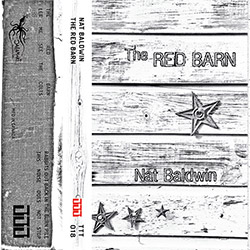
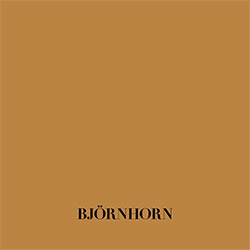

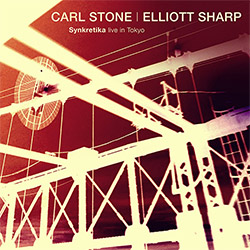



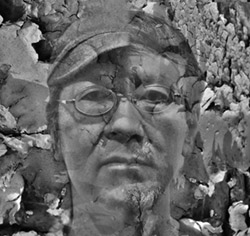
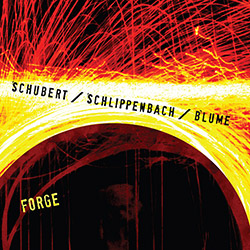
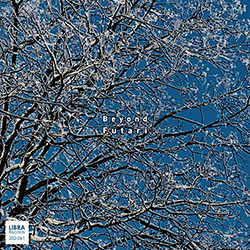

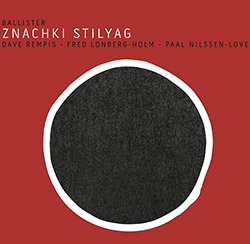
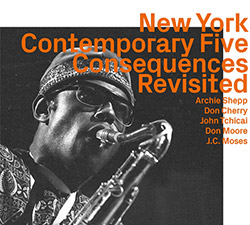
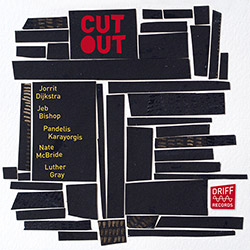


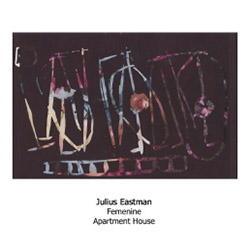
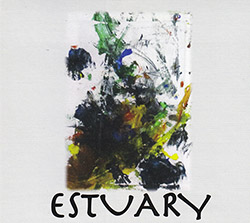




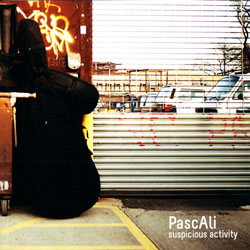
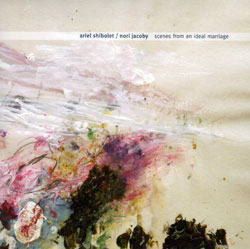
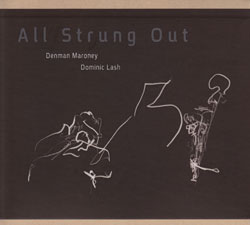

![HobbyHouse (Mia Dyberg / Axel Filip): HobbyHouse [CD + DOWNLOAD]](https://www.teuthida.com/productImages/misc4/36944.jpg)
![Mines, Kelsey / Erin Rogers: Scratching At The Surface [CD + DOWNLOAD]](https://www.teuthida.com/productImages/misc4/36945.jpg)
![Nebbia, Camila (feat/ Marilyn Crispell / Lesley Mok): A Reflection Distorts Over Water [CD + DOWNLOAD]](https://www.teuthida.com/productImages/misc4/36946.jpg)
![Vanheerentals, Adia: Taking Place [CD + DOWNLOAD]](https://www.teuthida.com/productImages/misc4/36947.jpg)
![Mines, Kelsey / Vinny Golia: Collusion and Collaboration [CD + DOWNLOAD]](https://www.teuthida.com/productImages/misc4/36948.jpg)
![Parkins, Zeena: Lament For The Maker [CD + DOWNLOAD]](https://www.teuthida.com/productImages/misc4/36949.jpg)
![Evans, Peter / Mike Pride : A Window, Basically [CD + DOWNLOAD]](https://www.teuthida.com/productImages/misc4/36950.jpg)


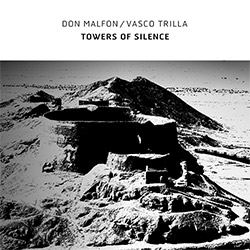
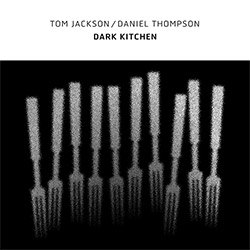
![Frey, Jurg : Composer, Alone [3 CDs]](https://www.teuthida.com/productImages/misc4/36927.jpg)
![Belorukov, Ilia / Alex Riva: Wrestling For Futility [CASSETTE w/DOWNLOAD]](https://www.teuthida.com/productImages/misc4/36994.jpg)
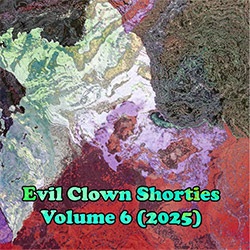
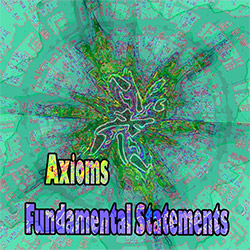










![Agnel, Sophie: Learning [VINYL]](https://www.teuthida.com/productImages/misc4/36841.jpg)

![Monaco, Amanda (w/ Michael Attias / Sean Conly / Satoshi Takeishi) : Deathblow [VINYL+ DOWNLOAD]](https://www.teuthida.com/productImages/misc4/36956.jpg)
![Frey, Jurg with ensemble]h[iatus: Je Laisse A La Nuit Son Poids D](https://www.teuthida.com/productImages/misc4/36988.jpg)
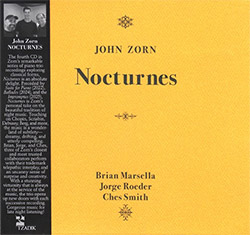
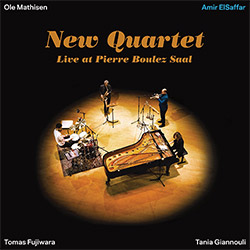
![ElSaffar, Amir / New Quartet : Live at Pierre Boulez Saal [VINYL]](https://www.teuthida.com/productImages/misc4/36830.jpg)

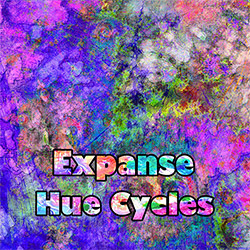
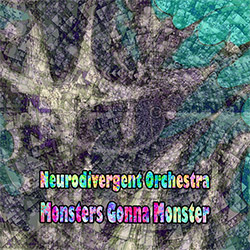
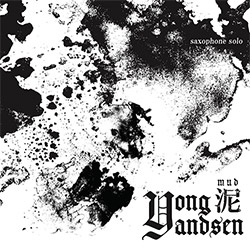

![Musicworks Magazine: #152 Fall 25 [MAGAZINE + CD]](https://www.teuthida.com/productImages/misc4/37004.jpg)
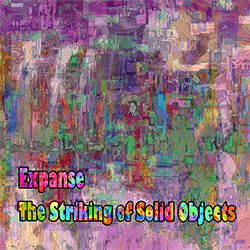




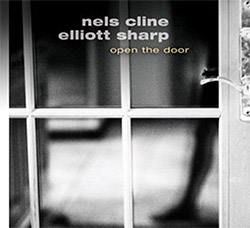
![[ahmed] (Thomas / Grip / Gerbal / Wright): Sama](https://www.teuthida.com/productImages/misc4/36976.jpg)

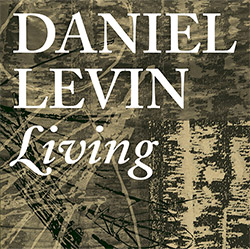
![Cleaver, Gerald / Brandon Lopez / Hprizm: In The Wilderness [COLOR VINYL]](https://www.teuthida.com/productImages/misc4/33060.jpg)
![McPhee, Joe : Defiant Jazz: a Joe McPhee Taster [VINYL]](https://www.teuthida.com/productImages/misc4/36859.jpg)
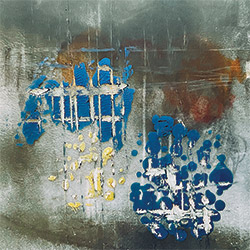
![Mateen, Sabir / Patrick Holmes / Federico Ughi : Survival Situation [LTD VINYL LP + DOWNLOAD]](https://www.teuthida.com/productImages/misc4/29891.jpg)
![Tucker, Dave / Pat Thomas / Thurston Moore / Mark Sanders: Educated Guess Vol. 1 [COLORED VINYL]](https://www.teuthida.com/productImages/misc4/30183.jpg)
![Sarian, Michael / Matthew Putman: A Lifeboat (Part I) [COLORED VINYL]](https://www.teuthida.com/productImages/misc4/30426.jpg)

![Genthon, Anouck / Lionel Marchetti: Suite Blanche [2 CDs]](https://www.teuthida.com/productImages/misc4/36642.jpg)
![Toeplitz, Kasper T.: Erosions Programmees [CD + BOOKLET]](https://www.teuthida.com/productImages/misc4/36639.jpg)
![Gate, The : Amost Live [CASSETTE + MAGAZINE]](https://www.teuthida.com/productImages/misc4/36836.jpg)






![A Magic Whistle: The Solar Cell [VINYL]](https://www.teuthida.com/productImages/misc4/36658.jpg)

![McGee, Hal: Columbus Expedition [Cassette w/ Download]](https://www.teuthida.com/productImages/misc4/36650.jpg)


![Jaeger, Kassel: Fernweh [VINYL 2 LPs]](https://www.teuthida.com/productImages/misc4/36541.jpg)





![+DOG+: The Light Of Our Lives [2 CDs]](https://www.teuthida.com/productImages/misc4/36009.jpg)


![Eternities: Rides Again [CASSETTE]](https://www.teuthida.com/productImages/misc4/36247.jpg)

![Lopez, Francisco: Untitled (2021-2022) [2 CDs]](https://www.teuthida.com/productImages/misc4/36438.jpg)





![Pisaro-Liu, Michael: Within (2) / Appearance (2) [2 CDs]](https://www.teuthida.com/productImages/misc4/36831.jpg)










![Musicworks Magazine: #151 Summer 25 [MAGAZINE + CD]](https://www.teuthida.com/productImages/misc4/36559.jpg)

![Brown, Dan / Dan Reynolds: Live At The Grange Hall [unauthorized][CASSETTE]](https://www.teuthida.com/productImages/misc4/36245.jpg)


![Zorn, John: The Song of Songs [CD + CD BOOK]](https://www.teuthida.com/productImages/misc4/36923.jpg)

![Coultrain: Mundus [COLORED VINYL]](https://www.teuthida.com/productImages/misc4/33056.jpg)
![Hprizm: Signs Remixed [COLORED VINYL]](https://www.teuthida.com/productImages/misc4/30635.jpg)
![Halls Of the Machine: All Tribal Dignitaries [CASSETTE w/ DOWNLOAD]](https://www.teuthida.com/productImages/misc4/36134.jpg)



![Koenjihyakkei: Live at Club Goodman [2 CDs]](https://www.teuthida.com/productImages/misc4/36111.jpg)

![Sorry For Laughing (G. Whitlow / M. Bates / Dave-Id / E. Ka-Spel): Rain Flowers [2 CDS]](https://www.teuthida.com/productImages/misc4/35985.jpg)

![Rolando, Tommaso / Andy Moor : Biscotti [CASSETTE w/ DOWNLOADS]](https://www.teuthida.com/productImages/misc4/36106.jpg)


![Electric Bird Noise / Derek Roddy: 8-10-22 [CD EP]](https://www.teuthida.com/productImages/misc4/35970.jpg)








![Elephant9 : Mythical River [VINYL]](https://www.teuthida.com/productImages/misc4/34624.jpg)



![Elephant9 with Terje Rypdal: Catching Fire [VINYL 2 LPs]](https://www.teuthida.com/productImages/misc4/35355.jpg)
![Coley, Byron: Dating Tips for Touring Bands [VINYL]](https://www.teuthida.com/productImages/misc4/17906.jpg)

![Lost Kisses: My Life is Sad & Funny [DVD]](https://www.teuthida.com/productImages/misc4/lostKissesDVD.jpg)